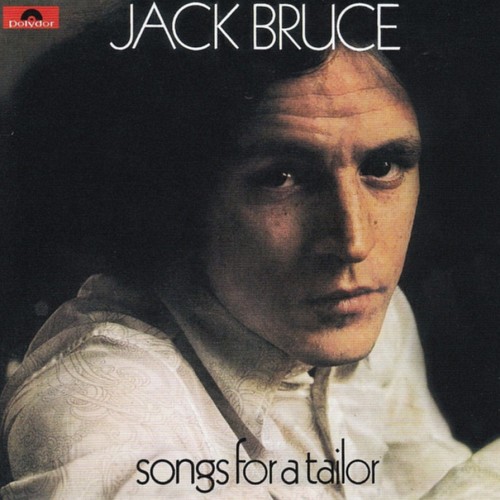8. Jack BruceSongs For A Tailor

I suppose worldwide it’s going to be overshadowed by Cream, and people just totally missed this stuff and the brilliant one that came later, Harmony Row. I could have chosen that one, but Songs For A Tailor was the first one for me that I discovered. The bass playing is thunderous, but you can still hear Motown in there somehow. The songs are so experimental, but at the same time they’re songs, they’re not silly experimental. They’re all feasible and credible as actual songs. He was taking pop music to the outer reaches, and the lyrics of course were by Pete Brown, a lot of them. They’re just drenched in LSD imagery, but at the same time they’re harnessed into songs by Jack Bruce’s musicianship and the band. Chris Spedding, Dick Heckstall-Smith; it’s got the jazz fusion thing, and I never went through a jazz fusion phase, that didn’t quite get me, but this had the universal element of songwriting. That’s really always been there for me, whatever phase I’ve gone through. I appreciate the songwriting, and I take from it, I’m influenced by it. If you listen to the melodic structure and the weird kind of string section part on my song ‘Stick To Me’, it’s influenced by Jack Bruce. It’s influenced by this very record. It’s a very strange melodic structure and the solo part by the orchestra, conducted by David Bedford, has this descending structure that you could imagine being on a Jack Bruce song on Songs For A Tailor. When I hummed it to David Bedford he said there are half-notes in it. I didn’t know what a half-note was! But it’s a very Eastern, weird scale. So I know that a lot of my creativity and songwriting not only comes from the soul music aspect and the blues and The Beatles and the Stones, it comes from people like Jack Bruce as well. Those influences are strong. They’re not overt and people don’t see them a lot of the time, but they’re there.
It has that feeling of these guys did all the acid and, unlike people like myself, who were, as we say, civilians, these guys were out on the world stages, going through the same kind of things that we were going through as part of a private, non-professional experience. And when they came out of the end of that I think we related to it because, yeah, we felt like we’d been there, man; we’ve seen it, we’ve done it, and now it’s time to mellow a bit, maybe, and chill. ‘Theme For An Imaginary Western’: it’s not some crazy psychedelic opus, it’s a song, but at the same time it’s still pushing the boundaries of songwriting. There are so many possibilities here; you don’t have to be a psychedelic band or a prog rock band, you can still progress, but in different ways using traditional forms. It was one of those things where it’s time to gather everything together and you don’t have to be part of the tribe; how about making really great songs using all of the influences we’ve got? That was what was going on.


